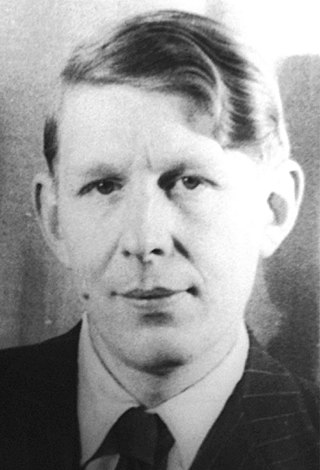
Wystan Hugh Auden was a British-American poet. Auden's poetry is noted for its stylistic and technical achievement, its engagement with politics, morals, love, and religion, and its variety in tone, form, and content. Some of his best known poems are about love, such as "Funeral Blues"; on political and social themes, such as "September 1, 1939" and "The Shield of Achilles"; on cultural and psychological themes, such as The Age of Anxiety; and on religious themes, such as "For the Time Being" and "Horae Canonicae".
Chester Simon Kallman was an American poet, librettist, and translator, best known for collaborating with W. H. Auden on opera librettos for Igor Stravinsky and other composers.
"Funeral Blues", or "Stop all the clocks", is a poem by W. H. Auden which first appeared in the 1936 play The Ascent of F6. Auden substantially rewrote the poem several years later as a cabaret song for the singer Hedli Anderson. Both versions were set to music by the composer Benjamin Britten. The second version was first published in 1938 and was titled "Funeral Blues" in Auden's 1940 Another Time. The poem experienced renewed popularity after being read in the film Four Weddings and a Funeral (1994), which also led to increased attention on Auden's other work. It has since been cited as one of the most popular modern poems in the United Kingdom.

The Shield of Achilles is a poem by W. H. Auden first published in 1952, and the title work of a collection of poems by Auden, published in 1955. It is Auden's response to the detailed description, or ekphrasis, of the shield borne by the hero Achilles in Homer's epic poem the Iliad.
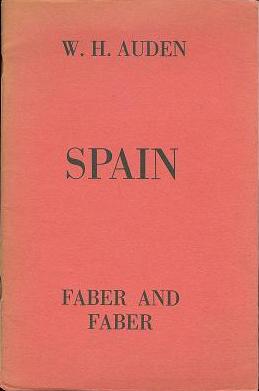
Spain is a poem by W. H. Auden written after his visit to the Spanish Civil War. Spain was described by George Orwell as "one of the few decent things that have been written about the Spanish war". It was written and published in 1937. Auden donated all the profits from the sale of Spain to the Spanish Medical Aid Committee.

Letters from Iceland is a travel book in prose and verse by W. H. Auden and Louis MacNeice, published in 1937. Auden revised his sections of the book for a new edition published in 1967.

Journey to a War is a travel book in prose and verse by W. H. Auden and Christopher Isherwood, published in 1939.
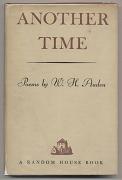
Another Time is a book of poems by W. H. Auden, published in 1940.

The Orators: An English Study is a long poem in prose and verse written by W. H. Auden, first published in 1932. It is regarded as a major contribution to modernist poetry in English.
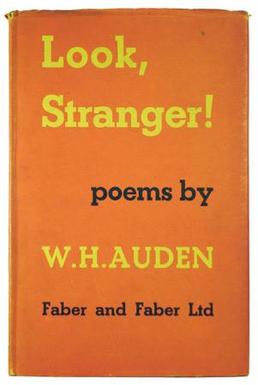
On This Island is a book of poems by W. H. Auden, first published under the title Look, Stranger! in the UK in 1936, then published under Auden's preferred title, On this Island, in the US in 1937. It is also the title of one of the poems in the collection.

The Double Man is a book of poems by W. H. Auden, published in 1941. The title of the UK edition, published later the same year was New Year Letter.
"The Sea and the Mirror: A Commentary on Shakespeare's The Tempest" is a long poem by W. H. Auden, written 1942–44, and first published in 1944. Auden regarded the work as "my Ars Poetica, in the same way I believe The Tempest to have been Shakespeare's."

For the Time Being: A Christmas Oratorio, is a long poem by W. H. Auden, written in 1941 and 1942, and first published in 1944. It was one of two long poems included in Auden's book also titled For the Time Being, published in 1944; the other poem included in the book was "The Sea and the Mirror."

The Enchafèd Flood: or, The Romantic Iconography of the Sea is a book of three lectures by W. H. Auden, first published in 1950.

Nones is a book of poems by W. H. Auden published in 1951 by Faber & Faber. The book contains Auden's shorter poems written between 1946 and 1950, including "In Praise of Limestone", "Prime", "Nones," "Memorial for the City", "Precious Five", and "A Walk After Dark".
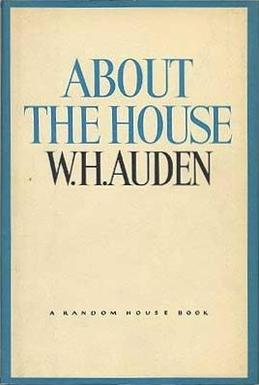
About the House is a book of poems by W. H. Auden, published in 1965 by Random House.

City Without Walls and other poems is a book by W. H. Auden, published in 1969.
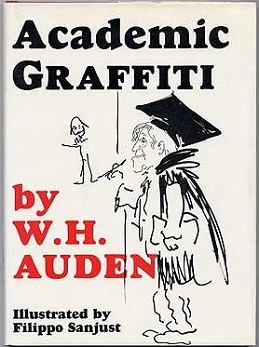
Academic Graffiti is a book of clerihews by W. H. Auden and illustrations by Filippo Sanjust. It was published in 1971.

Thank You, Fog: Last Poems by W. H. Auden is a posthumous book of poems by W. H. Auden, published in 1974.
This is a bibliography of books, plays, films, and libretti written, edited, or translated by the Anglo-American poet W. H. Auden (1907–1973). See the main entry for a list of biographical and critical studies and external links. Dates are dates of publication of performance, not of composition.















